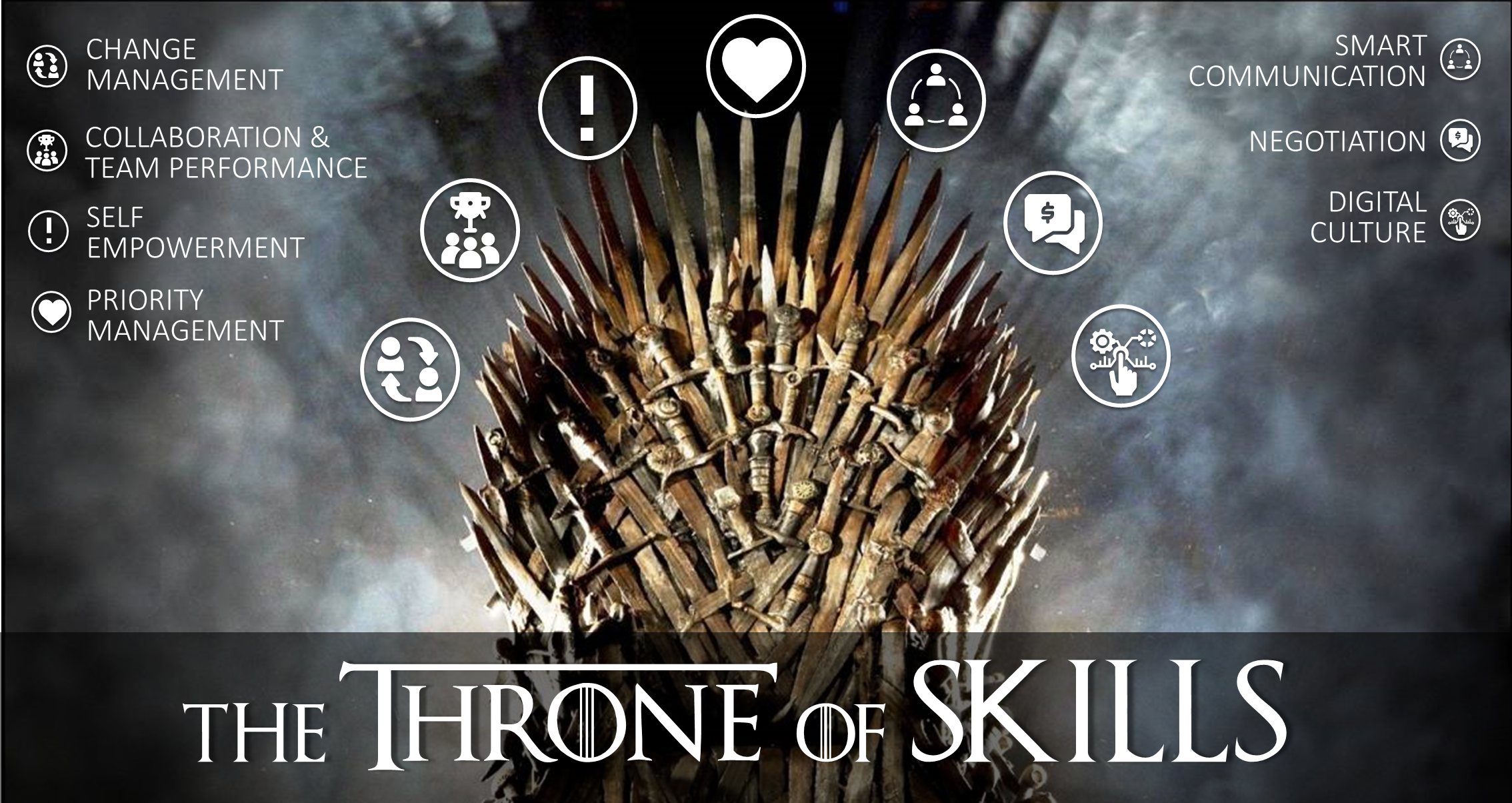Develop a Digital Culture
Published on 22/05/2019These are the simplest questions to confuse the most
If I asked what are computers for, I am quite sure I will receive many different answers. My answer is quite pragmatic: computers are used to increase human productivity - simple, synthetic, and a harbinger of interpretations.
The Sense of a Digital Culture
That's why my character for this eighth and final post is Bran Stark , one of the main characters that appears as a child in the first series and a young man by the seventh. Because of an accident since the beginning of the saga, he will never be able to walk, but he will be able to fly with his mind, discovering that he is a metamorph . Not easy to find the sense of digital in a medieval series. However, if there is something in this saga that has given me such reflections, it is the story of Bran.He manages to travel in the past and in the future , to discover the truth of things, to have the authentic interpretation of facts that are very important, even concerning the ownership of the Throne of Swords .The seventh and last driver that cannot be neglected to survive and evolve in this era of Business Transformation, however - is not the possession of mere "digital skills", but rather the acquisition of a (deep) digital culture."When the wind rises there are those who build walls, and those who build mills." says a sage. I would turn it into "there are those who learn to live with computers (by force) and those who instead exploit their potential".Because, going back to my initial statements, the machines serve to enhance the performance of human beings. So why not make full use of this opportunity?Our relationship with the "Digital"
The sense of inadequacy that pervades each of us, deriving from the feeling of lack of knowledge , is not generated by machines, but by incomprehension; digital evolves at an impressive speed as a result of some who manage to imagine and create a new world, which comes from the observation of man, from the simplification of his behaviors into repeated and repeatable actions, from the ability to perfect and eliminate the component of chance, returning perfected behaviors, to which man ends up being able / willing / having to adapt.Who does not do it is out of the game, in the medium term.Digital Transformation
Every activity has been transformed by the digital: management has been transformed by digital, communication, relationships, products, services, trade have been transformed by digital. A company that in the last two years which has yet to implement/digitalise - is destined to disappear rather quickly, swallowed up by the competition, or, above all, overwhelmed by new competitors that will appear in its market, exploiting the potential that digital will have offered them to create a bridge between their core business and the neighboring ones.In two years the Millennial will be 50% of the workforce and in another 20 years they will be the digital natives (those that are close to and not browsing to change the page of a book) to be 50%. My children study using learning platforms, they are used to communicating 1-to-many without any difficulty, they perceive relational barriers to be almost negligible, they almost do not perceive the difference between imagination and feasibility. The phrase that my 11-year-old son utters most frequently is "imagine if you can't do it" ...This is digital culture, which is a very different concept from knowing how to use Excel, Power Point, a smartphone or a tablet. The acquisition of skills is only the tangible consequence of digital culture. It is different from having an account in the latest Social Network or using Skype to make web-video calls.Conclusions
Many films of recent decades staged the invasion of aliens. The alien ... "he came to us, not the opposite, so it's necessarily more advanced."Let's see it this way, the one who today can develop a digital culture will be the alien, the others will be humans. I am not so confident as to rely on the "I hope that I manage"; but more of Digital Culture has to be acquired and not leaving to chance.This is the last article in the saga dedicated to the Game of Thrones.Here are the previous articles in cased you missed:
- The Throne of Skills - Development of an Individual
- Change Management: the need to adapt quickly
- Collaboration and Team Performance
- Self-Empowerment: knowing how to Do, how to Be
- Priority Management
- Smart Communication
- About Effective Negotiations

